
Letter from the Executive Director
Dr. Robert M. Panoff | Staff
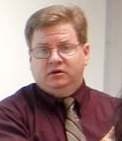
While Shodor started as a way to transform student learning and help college professors incorporate interactive models and simulations into their curriculum, over the years our best work, in my not-so-humble opinion, has been in producing outstanding students through our workshops, apprenticeships and internships. Our staff's "we'd rather be mentoring" attitude has produced many success stories as can be read here. Shodor helps students build and sustain an interest in science, mathematics, and technology through use of innovative technologies starting in upper elementary grades and progressing through their middle and high school years. We help these students to see themselves as successful and happy, encouraging them to pursue studies in college and careers in science and math. We enable students to progress from excitement to experience to expertise through research opportunities and service by applying computational and communication technologies to real world problems. Shodor's approach is innovative in both the technology we use and the experiences we offer to students. Students in Shodor programs experience directly how computing and communication technologies showcase the power of observation, the excitement of exploration, and the joy of discovery with accomplishment.
We hope that you continue to enjoy reading about the many accomplishments of our students and we seek to expand the opportunities to engage a larger number by sharing and scaling up our efforts with local, state, and national partners. Please share our story with your colleagues and friends.

Bob Panoff
Point and Click: How Technology is Changing the Classroom
Jenny Jones | Staff
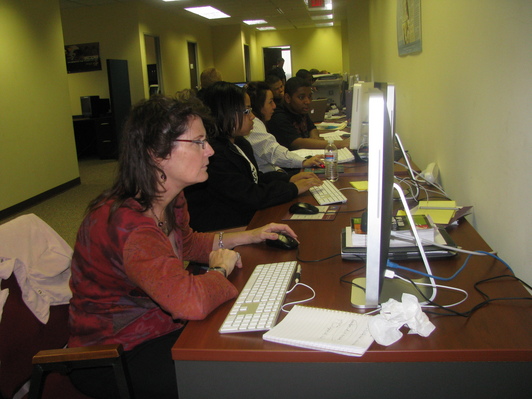
From email to interactive white boards, online textbooks to "webinars," teachers are using technology to communicate ideas to students in more engaging ways. In the 2008 Speak Up report, an annual survey of teachers, students, and parents, Project Tomorrow considers how students learn outside of school, saying, "Technology has enabled students to be uber-communicators, and more participatory learners." Shodor intern and junior at Durham School of the Arts, Krista Katzenmeyer agrees, saying that she appreciates her biology teacher who uses technology - specifically a document camera - to demonstrate dissections in class. It enables students to see what's going on without crowding around.
Technology also enables teachers to develop better content for their classes. Cameron Aviles, Shodor apprentice and sophomore at Jordan High School in Durham, says that when his teachers had better tools, it was easier to teach, and for him, "it was easier to learn." When teachers don't have to worry as much about presentation, it seems only natural that the content would improve.
One of the most engaging ways technology can be used in the classroom lies not with communication or presentation but with the ability it gives students to explore new ideas. A recent Shodor workshop on fractals showed students engaged in mathematics because they were able to learn interesting content through technology. Obviously, not all learning is going to be considered "fun" for students. Sometimes, they must learn basic skills and facts. Indeed, complicated ideas, especially in math and science fields, are more accessible to students at lower levels of education because computers are able to take them beyond what their skills alone would otherwise allow. In volume 4, issue 19 of the ASCDExpress, Shodor Executive Director Dr. Robert Panoff elaborates on this idea, saying, "Computation in the sciences has become the new microscope or telescope, enabling us to extend our limited powers of observation to better understand-through modeling-the world around us."
While engaging students through the use of technology is important, teaching students how to use technology must also be central to improving education. The TechMath Project seeks to teach students how math and technology are used in local businesses. This example shows how technology education prepares students for the 21st century workforce. Further proof can be demonstrated through Shodor's apprenticeship and internship programs, where students who participated are moving on to college and future careers, better prepared for a society with a growing emphasis on technology.
Shodor Prepares Students for Professional Experiences
Avi Aggarwal | Intern
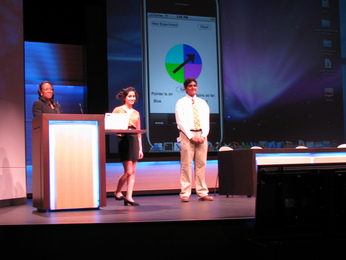
On December 3, 2009, two Shodor Interns presented at the MCNC/NCREN 25th Anniversary Celebration in Cary, NC. Sidhartha (Sid) Jandhyala and Avi Aggarwal presented the iPhone/iPod Touch application they have been working on as Shodor apprentices since the previous summer.
The application, called Spinner, is based on an applet from Interactivate , a collection of online activities and resources developed by Shodor for educational purposes. The Spinner project involved creating a new application using the programming language Objective C, from scratch. Other Shodor apprentices who helped with the project include Sanket Prabhu, Mauricio Barreto, and Pablo Heitman.
MCNC is a non-profit organization that improves learning and collaboration in North Carolina's education community through advanced networking technologies and systems. The North Carolina Research and Education Network (NCREN) is a leading statewide optical network produced by MCNC. Many Shodor resources are supported by the NCREN network. The organization celebrated this impressive network's 25th anniversary at the Community Celebration at the SAS Institute's Headquarters on December 3rd and 4th, 2009. Many members of the NCREN community, including representatives from various colleges, companies, and organizations, attended the workshops and panels at the 25th anniversary celebration. Shodor Associate Director Patricia Jacobs and Executive Director Dr. Robert Panoff were among these attendees.
"I was nervous at first, but the reaction from the crowd made me feel better and more relaxed," said Sid about the presentation. "The presentation was really exciting; it made me feel like Steve Jobs, unveiling the next Shodor product." Sid and Avi were the only high school students presenting at the celebration, and they benefitted a lot from this unique experience.
"Initially, I was unsure of what to expect. However, the audience was receptive and laughed at our jokes. It helped a lot that Patricia and Dr. Panoff were there. It was a great opportunity, and I learned a lot about how to present in a professional setting. All the presentation skills we have been learning at Shodor certainly came in handy. We met a lot of fantastic people," Avi related. "After our presentation, a lady from Apple came backstage and told us to work for them!"
This presentation is just one example of many instances at Shodor where students are exposed to professional settings. Shodor not only educates students in science, math, technology, and research, but also prepares them for the professional world. A vital part of the Shodor curriculum is preparing students for professional settings through knowledge and teaching of ethics, office etiquette, communication, and leadership skills. These important lessons will definitely prove useful for students such as Sid or Avi, should they choose to work a career in the computational science field in their future.
Shodor Student Receives Student Leadership Award from North Carolina SMT Education Center
Hillary Stoker | Staff
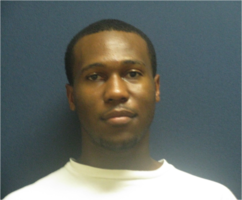
Shodor intern Alex Revelle has been awarded the Student Leadership Award in Science, Mathematics, and Technology Education by the North Carolina Science, Mathematics, and Technology (STM) Education Center. This award not only publically recognizes Alex's great work at Shodor but also awards Alex a $1000 scholarship helping him to continue his education in the science, math, and technology field.
Alex began his work at Shodor as a workshop student in 2006 and since then has completed Shodor's apprentice program, which he chose to continue on to an internship where he has become a leader among his Shodor peers. Most recently Alex has been working with Shodor's Braille website, Braille Through Remote Learning . This website, visited by thousands of users each month, is designed to be used as a resource for those wanting to instruct the visually impaired. Alex has taken the technical skills he has learned throughout his time at Shodor and been able to develop a more user friendly interface for the Braille webpage while updating the Braille webpage content routinely; he has also worked on numerous other projects such as writing articles for the Shodor newsletter InterActions, teaching offsite workshops to elementary and middle school students, and assisting Shodor staff in professional presentations.
Outside of Shodor Alex should be commended for his dedication to the Durham community through his work with the Durham Bulls' Post 50, a video production team of Durham youth that work to broadcast Durham Bulls baseball games. As a graphics controller for the video production of these games, Alex is able to take some of the skills he has learned at Shodor and apply them in a real-world situation. Alex is also very accomplished in academics and has recently been accepted to North Carolina A&T State University, which he will be attending in the fall.
"I am very grateful and humbled by this award because I realize just how prestigious it is. Out of all the people who applied I was the one chosen. It is important to me to thank all the staff at Shodor for their support, help and encouragement through the years. They have taught me that hard work and dedication can pay off in a big way. When I started with Shodor in 2006 I was not sure if I would like it. Now that I am a high school senior it's going to be hard for me to eventually leave. In fact, I am considering continuing my Shodor internship when I enroll in college in the fall," Alex says.
Alex will be honored on Saturday April 17th at the Celebration of Science, Mathematics, and Technology Education, which is being held at the Embassy Suites in Cary, NC.
Shodor Intern Wins Prestigious Computing Award
Valerie Gartland | Staff
Shodor intern Ada Taylor first got involved in technology when she was seven years old. It was then that her father taught her Logo, her first programming language. This opened the door to the world of computing, and ever since then Ada has been interested in robotics, programming, and hardware.
In December 2009, Ada's hard work and enthusiasm for technology was nationally recognized. NCWIT (the National Center for Women & Information Technology) selected Ada as a 2010 recipient of the National NCWIT Award for Aspirations in Computing. NCWIT is an organization that seeks to support women in information technology. The Award for Aspirations in Computing is given to high school students who have proven themselves as high-achieving women in the computing field.
Ada is one of 33 students chosen from more than 700 applicants nationwide. When asked how she felt about receiving this award, she replied, "I was really proud to be chosen out of so many other talented applicants!" As a recipient of this award, Ada will be going to Charlotte to attend the Bank of America Technology Showcase and Awards Ceremony in March. She will also receive a cash prize, an engraved plaque, and a laptop computer.
Ada first heard about the NCWIT award through Shodor. Shodor regularly advertises opportunities like this award to its interns and apprentices. In the three years Ada has worked at Shodor she has graduated from her position as an apprentice to intern. As an intern, Ada joined the HPCU development team, developing tools for hpcuniv.org. She also worked with a team of apprentices who built a system that emulates a SmartBoard using a laptop, a Wii remote, and an infrared LED light. Speaking of her experience at Shodor, Ada said, "I love learning more programming skills, and also getting to apply them in real-life situations, something most high school and even college students don't get a chance to do."
Ada was not the only Shodor student recognized by NCWIT. Another high school intern, Krista Katzenmeyer was a semi-finalist for the Award for Aspirations in Computing. Shodor students are often awarded for their achievements. After working at Shodor, many interns and apprentices have been accepted to prestigious colleges and universities and have taken prominent positions at businesses, non-profits, and schools in the Triangle and beyond.
Where Is He Now?
Paris Fears | Intern
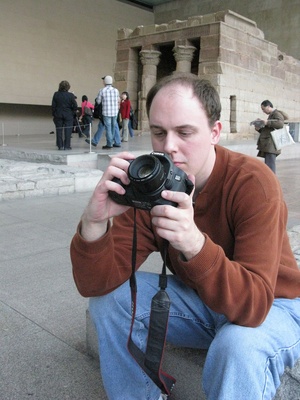
With over sixteen years of history in the mentoring business, Shodor has plenty of experience molding its interns, apprentices, and staff; guiding them into careers as scientists, instructors or professors, and other technology related professions. For some Shodor is the last stop in their science, technology, engineering, and mathematics (STEM) career and for others, like Alton Patrick, it is merely a stepping-stone.
Former high school and post grad intern of Shodor, Alton Patrick, is now a Vision technologist for Sarnoff Corporation in Princeton, New Jersey. Today he works with a wide range of scientific areas from robotics and artificial intelligence to graphics and computer vision. While at Shodor he was responsible for developing some of the numerous software programs that Shodor uses today, such as applets in InterActivate .
When asked about his experience at Shodor Alton said, "Shodor gave me experience working on fairly large software systems that a lot of people relied on. When you're doing that sort of real-world work, as opposed to small programming projects, you run into different issues and have to have different standards for quality. Having that background has definitely been an advantage now that I'm working on even larger software systems with even bigger stakes." For about five years Alton has been working with many functions that extend across government and commercial security and defense spaces; for example developing a software system called, TerraSight, which is a large system for aerial video processing. Although much of this is far beyond Shodor's reaches, Alton had to start somewhere.
Alton said he would have never in a million years thought he would be moving from Shodor into something as major as Sarnoff Corporation. He went on to give current Shodor apprentices and interns advice saying, "Whatever you work on at Shodor, especially the boring projects and most insignificant or thankless task... You're going to learn something that will make you better at what you do or give you skills to help someone else in the future." Aside from surrounding students with a warm and welcoming work environment, Shodor is helping people to build their future by giving interns and apprentices things that will better them and prepare them for real world working experience. Alton Patrick is just one of the many success stories Shodor can boast about.
Shodor Saturday Workshops
Eric Aiello | Intern
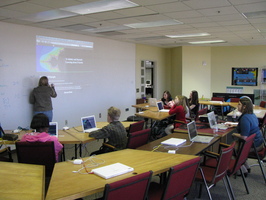
This summer, Shodor will be offering multiple week-long workshops for students interested in math, science, engineering, and technology. Shodor will be offering the following workshops for 6th-8th grade students: Math Explorations, Forensics, Programming Concepts, Web Design, Engineers in Training, and Modeling your World. Students in the 9th-12th grades will have the opportunity to participate in the following workshops: The Shodor Scholars Program, Engineers in Training, Programming Concepts, Web Design, and two new workshops, which are Parallel Computing and the iPhone Development workshops.
The iPhone Development workshop will focus on the development of basic iPhone applications. The Parallel Computing workshops will offer students the chance to work with parallel programming concepts, and the chance to work with an educational parallel computer named Little FE. Also, Shodor will be working with the Carteret County School system, to expand Shodor's reach and host workshops in that area. These workshops provide a wonderful source of knowledge for eager students. Sidhartha Jandyala, a current Shodor intern and participant of previous Shodor summer workshops stated, "Shodor is a great way to spend the summer because they provide both a learning environment and a fun environment." Jon Gunneson, a current apprentice and former workshop participant, also said that Shodor is contributing to his learning and that is helping him to grow intellectually and socially as a person. Jon also said that Shodor is great because the workshops offer subjects that hold his interest, subjects that are not offered in his school. Registration for these workshops can be found on the Shodor website at http://www.shodor.org/calendar.
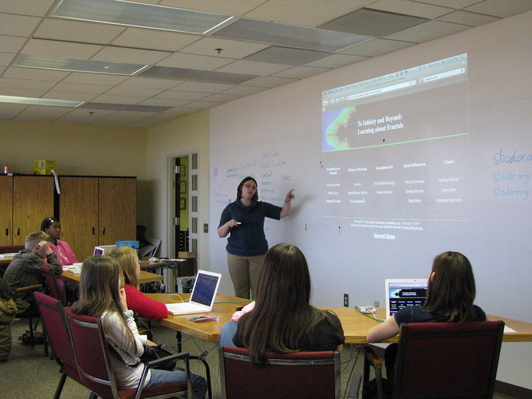
Shodor Receives Funding From National Spending Bill
Hillary Stoker | Staff
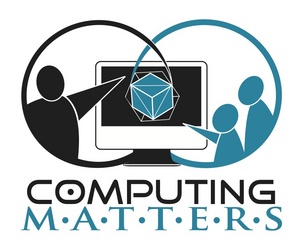
North Carolina Congressman David Price announced Monday December 14th that he had secured some $10 million in funding (allocated from a House of Representatives spending bill) for economic development in the Triangle area.
Of that 10 million, $200,000 has been earmarked for Shodor to put towards the Computing MATTERS project, which will help Triangle-area high school students master 21st-century work skills as apprentices and interns. Computing MATTERS , an acronym for Mentoring Academic Transitions Through Experiences in Research and Service, includes several local programs for students exploring STEM subjects and teaching 21st Century Workforce skills. The Computing MATTERS program offers weekend and summer workshops for middle and high school students, apprenticeships and internships for high school and undergraduate students, and off-site outreach programs at local community centers and elementary schools for participants of all ages.
"One component of the Computing MATTERS plan is to take our Shodor workshops out to the community to reach and interest more students in science, technology, engineering and mathematics (STEM)," says Patricia Jacobs, Shodor Associate Director and Outreach Coordinator. "We do this by partnering with local schools such as Durham Public Schools, community centers and faith-based centers that have afterschool or summer programs already in place. Computing MATTERS also allows us to train local high-school and undergraduate students to teach in the afterschool and summer programs."
The money received from Congress will help to reinforce and intensify the impact and reach of these programs throughout the local communities by allowing Shodor to expand and improve workshop materials, workshop frequencies, outreach development, and staff mentoring of apprentices and interns. It is through these interactive programs, students experience the thrill of innovation, the power of inquiry and develop an enthusiasm for learning.
Shodor's Executive Director, Dr. Panoff, Presents at the National Academy of Sciences
Andrew Fitz Gibbon | Staff
Founded in 1863 by President Abraham Lincoln during the Civil War in order to "investigate, examine, experiment, and report upon any subject of science or art", the National Academy of Sciences -- later expanded to include the National Research Council, the National Academy of Engineering, and the Institute of Medicine -- serves as a body of highly distinguished scientists and researchers committed to ensuring reliable and accurate reporting of scientific issues to the government and the public. Of the Academy's 2,100 members, 200 are Noble Prize winners. Additionally 380 of the Academy's foreign associates are also Noble Prize winners, furthering the prestige of the organization.
Shodor's Executive Director, Dr. Bob Panoff, was invited to attend one of the Academy's meetings and participate in discussions as a panel member. The meeting was held in early February in Washington D.C. and is the third in a series meant to examine various aspects of Computational Thinking (CT) and how ideas like "CT for everyone" might fit into K-12 education. The panel on which Dr. Panoff sat discussed topics such as the multi-disciplinary nature of CT, how programming relates to CT, or the most plausible routes to effectively covering the most important CT concepts in a K-12 classroom.
What's New With HPCU?
Ada Taylor | Intern

Last July, Shodor staff members worked with Scott Lathrop from TeraGrid to plan a new layout for the High Performance Computing University (HPCU) website that would make it more accessible and match the rest of Shodor's website. HPCU is a virtual organization whose primary goal is to provide an online environment to share educational materials for high performance computing environments. Created by interns as part of the mentorship program at Shodor, the new layout was released early November, right on time for the SC09 Education Program in Portland, Oregon.
Here's what new:
-
Featured Item - The front page of HPCU now displays a rotating set of featured resources from
Shodor's catalog, making it effortless to discover new HPCU resources.
-
Better Interface - Similar to Shodor's main website, drop down menus allow users to find what they want
in a single click instead of having to search through multiple pages.
-
Topical Calendars - HPCU now features multiple calendars which organize events so users can find the type
of events they are interested in.
What's the bottom line? The new design is intended to make HPCU even more accessible and straightforward, and it definitely succeeds!